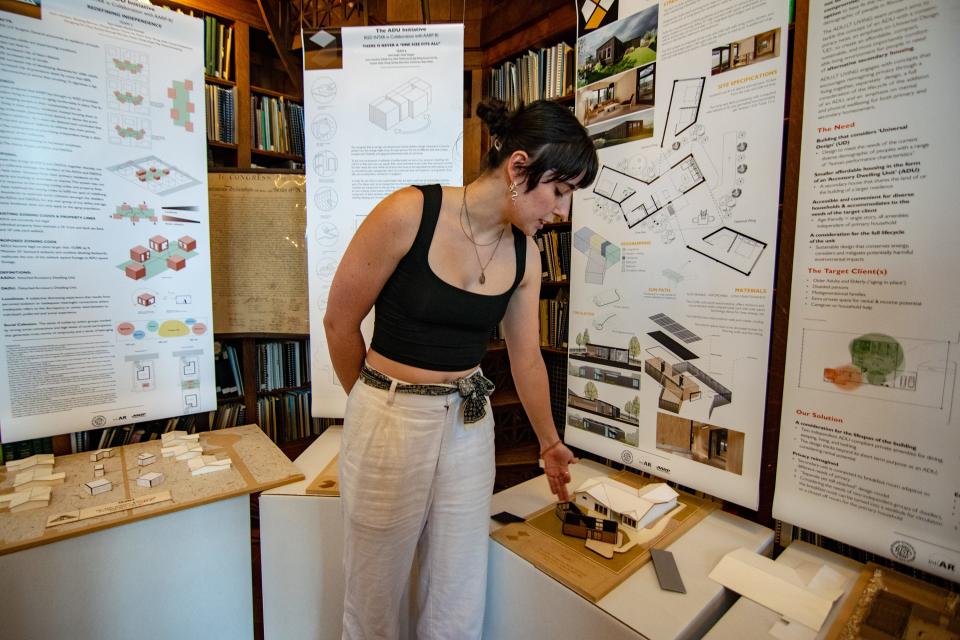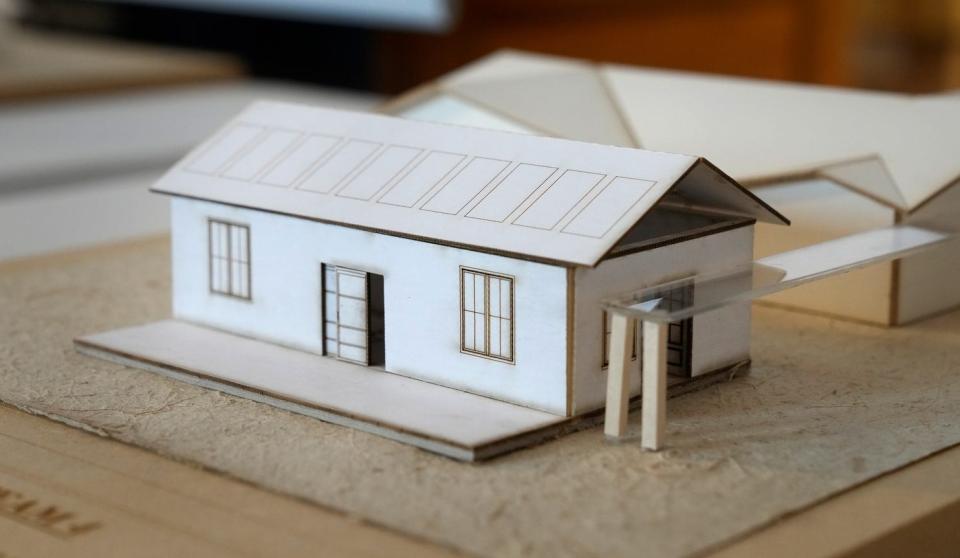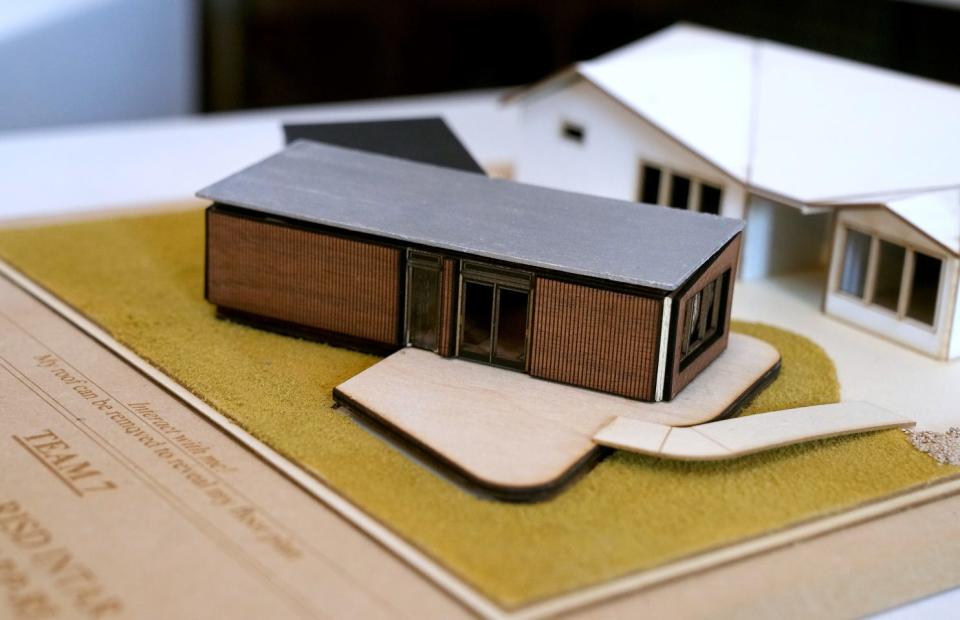What could 'granny flats' look like? These RISD students have an idea.
PROVIDENCE − Ella Nadeau points to the model of a tiny accessory dwelling unit in the State House library, the winning design in a contest put on by AARP for Rhode Island School of Design students.
The interior design graduate student and the rest of her team were tasked with designing an accessory dwelling that would appease neighbors, be nice to live in and be accessible to someone using a wheelchair.
The concept Nadeau and her team came up with was a modular building, with one core building and offshoots that could be added for additional bedrooms, offices or storage, combining both the cost savings that come from modular building manufacturing and ease of adding space.
A total of 10 teams of RISD students designed accessory dwelling units, also known as in-law apartments or granny flats, as the push to make them legal across the state ramps up again.

A bill to legalize the building of accessory dwelling units across the state died in the Senate last year, the only measure that was a part of Speaker Joseph Shekarchi's 14-bill housing package that did not become law. Last year was the second year in a row the bill died in the Senate. The bill has been reintroduced this year.
Accessory dwelling units hit home for legislators
Two champions of the bill, Shekarchi and Sen. Megan Kallman, both of whom helped pick the winning accessory dwelling unit design, said the law is becoming personal for them.
Accessory dwelling units are either smaller, secondary houses on a single-family house lot or independent additions to a house. Accessory dwelling units are often used for family members, like college students, in-laws and older parents. State law even specifies that, where these residences are allowed, they can only be occupied by "family" members.
Shekarchi said he has "lived and felt" the need for accessory dwelling units. His 97-year-old father had a brief stint in a nursing home but is back living at home.

After Kallman's mother recently had a health scare, she told Kallman she intends to move in with her when she can no longer take care of herself.
"All of a sudden, this issue of proximate housing has a little more urgency in my life than it did, shall we say, a couple of months ago," Kallman said.
What would the accessory dwelling unit bill do?
The bill would make accessory dwelling units allowed in all residential districts in the state and, if they meet state requirements, would require them only to go through an administrative building-permit process.

An accessory dwelling unit would be allowed by right under three different scenarios:
On an owner-occupied property "as a reasonable accommodation for family members with disabilities"
On lots that are 20,000 square feet (a little under a half-acre) with a primary residential use
When the unit would be added to the "existing footprint" of either the house or another existing building on the property
During a hearing last week following the presentation, most people spoke in favor of the legislation, and no one spoke explicitly against it.
Rupert Friday, a Narragansett Planning Board member who spoke in a personal capacity, said the bill was needed but the maximum size was too big and that the units should be allowed only on owner-occupied properties because otherwise "real estate speculators" might add them to houses to increase their value, increasing the cost of houses in Narragansett. He also suggested a provision be added to prohibit them from being sold separately from the main house, since people would seek to "circumvent" local zoning rules.
The Narragansett Town Council has recently taken steps to circumvent the laws passed last session that made it slightly easier to build housing and prevent more than three "unrelated" people from living in the same dwelling.
Thanks to our subscribers, who help make this coverage possible. If you are not a subscriber, please consider supporting quality local journalism with a Providence Journal subscription. Here's our latest offer.
Reach reporter Wheeler Cowperthwaite at wcowperthwaite@providencejournal.com or follow him on Twitter @WheelerReporter.
This article originally appeared on The Providence Journal: Students design granny flat ADUs as bill legalizing them sees new life

